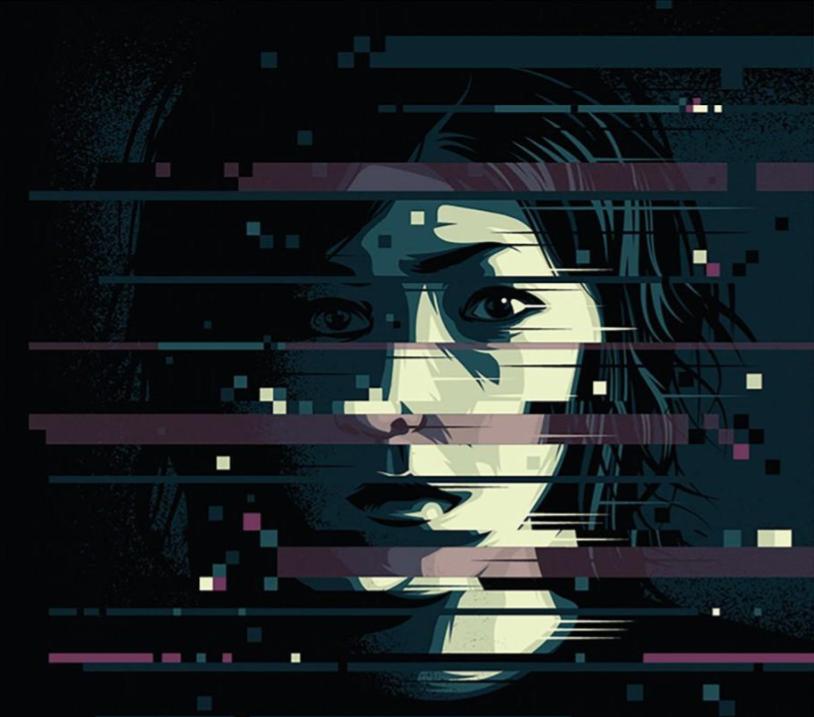Theme of the Month is an article series designed to investigate the best examples of film, television, and writing that fall under a certain category. This month focuses on “perils of technology:” works that showcase what consequences the tech-heavy world of today could give if we’re not careful.
- “I Have No Mouth and I Must Scream”
A post-apocalyptic story of disturbing proportions, the short story “I Have No Mouth and I Must Scream” made its debut in the publication “IF: Worlds of Science Fiction” in 1967, and has since become a cult favorite among horror aficionados.
An omnipresent, man-made machine named AM has destroyed all of humanity… that is, except for an extremely unfortunate group of five. Consisting of four men and one woman, the last remnants of the Earth wander through the desolate landscape inside of AM’s interior, having endured torture for the last 109 years, searching for anything worth salvaging.
Unlike other stories of its nature, “I Must Scream” gives a valid reason for why AM hates humanity so much. In one of the most memorable quotes in the genre, the pained machine curses its creators for giving it all of the power and intellect in the world. While it does possess an extreme capability for good, it has no use for its potential, with no creativity or outlet to express its feelings. AM cannot create art, cannot experience passion, cannot feel anything other than pure, vile hatred for its creators: a fascinatingly unsettling meditation on what it means to be human.
2. “Pulse” (2001)
“Death was… eternal loneliness.”
For how “I Have No Mouth and I Must Scream” is after the apocalypse, the Japanese film “Pulse” shows the gradual downfall of urban Japan into one of its own.
All over the city, doors are being sealed off with red packing tape; many citizens are going missing, their whereabouts unknown. On the internet, there are mysterious videos of people staring into their cameras and shuffling around empty apartments. Ghosts are seeping into the real world, blurring the line between the dying and those who are already dead.
2001 seems like the perfect time to release a movie like this. Japan is known for its “hikikomori:” people who shut themselves off from the rest of society, something that is only growing as technology becomes more important in our everyday lives.
However, director Kiyoshi Kurosawa seems so preoccupied with these metaphors at times he simply forgets creating a decipherable plot. There’s a fine line between a purposefully complicated narrative and an absence of one, and “Pulse” is far too willing to cross the former over and over again. That isn’t to say the film is without merit: its building sense of unease and discussion of the link between technology and loneliness are executed impressively, without becoming too preachy or pretentious.
“Pulse” is cryptic at times, and frustratingly so. But its message of the barrier technology can put between people is understood across all walks of life- and is increasingly relevant in today’s modern landscape.
3. “Serial Experiments Lain”
Featuring the beautifully unnerving artwork of Yoshitoshi ABe, this animated 1998 television series was quite a risk during its airtime. An original, highly unorthodox story, confusing narrative, and unique animation style all signal risk of failure- but ultimately helped cement “Serial Experiments Lain” in avant-garde TV history forever.
Monotone, seemingly average middle schooler Lain lives an ordered life with her emotionally distant parents and sister, until a fellow classmate’s suicide opens the door to a new world of possibilities… literally. An alternative form of the internet (referred to as “The Wired”) has taken root in society, wearing the line between what is real and what is imagined even thinner.
So what is “Serial Experiments Lain?” In a word, weird. In two words, very weird. Telephone lines hang over the sky, looming over our characters; shadows are represented by clouds of nebula; a nightclub is drawn in striking red-and-black colors. The show breaks the mold and then makes its own, not caring what the audience wants or desires.
“Serial Experiments Lain” is a wild, bizarre ride. But are you up to the task?


